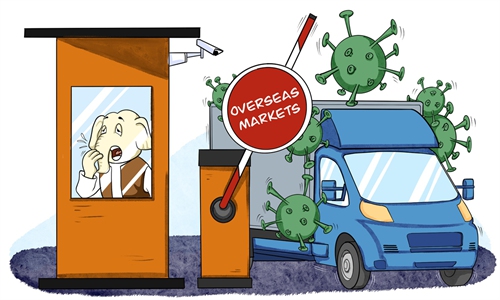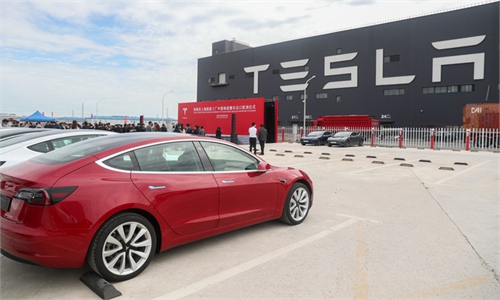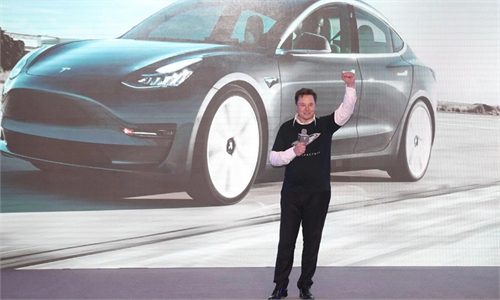COMMENTS / EXPERT ASSESSMENT
Tesla setback reflects India’s long-standing protectionism

Illustration: Tang Tengfei/GT
The US-based Tesla, so far, may have been the most famous electric vehicle brand across the world, expanding rapidly in both domestic and overseas markets in recent years. After achieving huge success in China with its giga-factory in Shanghai, it reportedly encountered a setback in India as New Delhi straightforwardly turned down its lobby to lower tariffs.
India has no plans to cut import duties on electric vehicles after Tesla made the appeal to Indian authorities to slash taxes, local news outlet India Today reported on Tuesday, citing Krishan Pal Gurjar, the junior minister for the Heavy Industries Ministry.
About a week earlier, Tesla reportedly asked New Delhi to cut the duties to 40 percent from the current 60-100 percent, and implied it held an intention to build factory in India. Though it has hit news headlines, the development is not beyond expectation as India, in the first place, is well known for its protectionism and excessive restrictions on foreign capital.
Before Tesla's latest setback, there is a long list of foreign investors who have hit a brick wall in the market, including Chinese social media platform TikTok and other more than 200 apps which have been banned arbitrarily by the government. In spite of years of hyping up of the so-called "high potential" of the Indian market, many global investors clearly know that it is not the promised land for business it once appeared, from the low social efficiency to the poor credit of authorities.
Tesla itself might only intend to sound out the market, since it is clearly not an ideal choice for the firm to make big bets in the market given the current circumstances. In addition to the uncertain policy environment, volatile market, India possesses few real advantages besides its large size of population base.
India is still in the initial phase of industrialization, with unstable supply of electricity and other necessary infrastructure. It is hard for Tesla to scale-up massive production in the country, not to mention the high requirement of charging stations for consumers. Per data from IndexMundi, electricity consumption per capita in India was 857 kilowatt hour (kwh) per person last year, comparing to US' 11,730, China's 3,991 and Thailand's 2,721.
Moreover, a large population size does not equal to consumption power. According to data from the World Bank, India's GDP per capita in terms of purchasing power parity recorded $6,454 in 2020, while Indonesia's totaled $12,073 and China's registered $17,312.
Reproducing their successes in Chinese market is not a realistic goal for Tesla and many other multinationals, although some used to believe that India could be the "next China" for global industrial giants. It is not.
After over 40 years of unswervingly opening-up and reform, China has gone a long way cultivating a mature market, with leading manufacturing capability, sound infrastructure, a stable policy environment and a colossal market with an ever growing consumer demand.
During the process of opening-up, China introduced in fiercer market competition, but also stood up industrial chains and cultivated a labor force boosted by world-class talent, which keeps driving up market growth.
New Delhi, though has been repeating its intention to lure foreign capital, appears unable to carry out consistent or reliable measures to support this agenda. Behind the long-standing unfriendly attitude toward foreign investment, there is the high pressure from domestic plutocrats, including those within the auto sector.
However, the protectionism will hurt India's short-term recovery from the COVID-19 pandemic and its long-term growth. Building up walls can repel competition from outside, but also lost an opportunity to foster its own talent and growth momentum amid competition.
The author is director of Institute of Bay of Bengal Studies, Institute of China's Overseas Interests, Shenzhen University. bizopinion@globaltimes.com.cn



